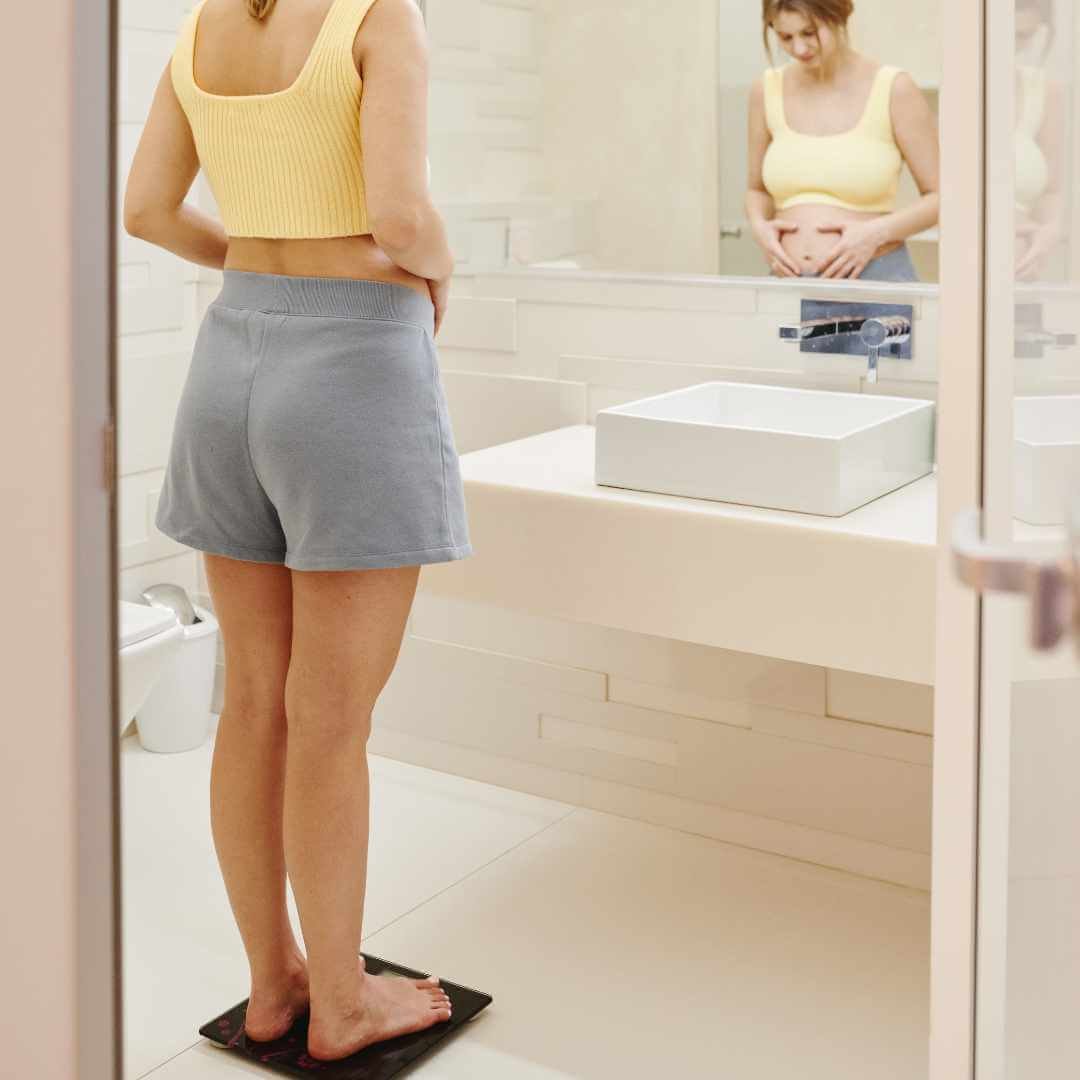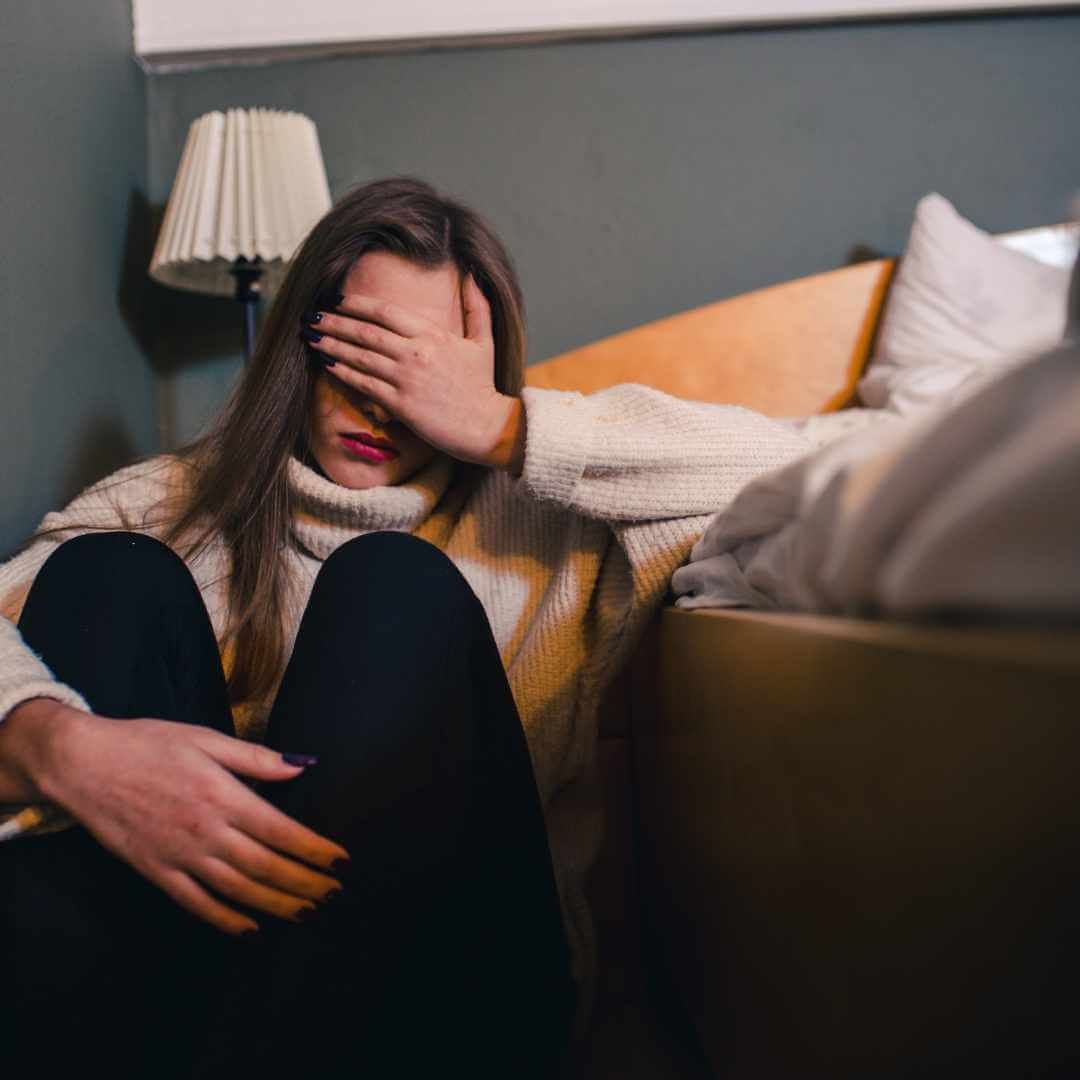4 Reasons to Ditch the Scale: A Salt Lake City Eating Disorder Therapist Explains
Many of the women I work with in Salt Lake City and across Utah tell me the scale has become a source of anxiety, shame, and control rather than helpful information. For some, weighing themselves starts as a way to “stay on track,” but quickly turns into an obsession that affects their mood, self-worth, and relationship with food. In cultures that value discipline, self-control, and looking put together, it can feel hard to let go of the number on the scale, even when it’s clearly making things worse. Working with an eating disorder therapist in Salt Lake City can help you understand why the scale feels so powerful and how to begin breaking free from that cycle with compassion and support.
A common behavior my clients have been using before they come to therapy is weighing themselves. The frequency is different for everyone, but it impacts the women I see the same way: the scale makes my clients obsessive, and they feel terrible about themselves. Weighing yourself can do more damage than it can be helpful.
Should people with eating disorders have scales?
No, they shouldn’t. In fact, even after they have recovered from an eating disorder, they don’t benefit from having a scale. The scale tends to be a triggering thing for women, even without eating disorders. It tends to reinforce the need for control and disordered eating. I also recommend that other people in the house don’t have scales either, because trust me, the person with an eating disorder will find it. Usually, it’s when they are feeling the lowest and are looking for some reassurance, and that in and of itself is harmful.
Do scales cause eating disorders?
Eating disorders are complex and complicated mental health issues, and no single thing causes an eating disorder. Obsessively weighing yourself is a disordered behavior and can contribute to the development of an eating disorder. The value placed on the number on the scale can fuel eating disorder behaviors such as restriction, overexercise, and purging. It doesn’t seem to matter how low the scale can go; it’s never enough for people who struggle with eating disorders. The scale only makes eating disorders worse.
Why you shouldn’t weigh yourself every day?
There are many reasons why you shouldn’t weigh yourself every day. Here are some of the common reasons why you shouldn’t:
Daily fluctuations: Even if you are attempting to use the scale as a measurement tool, there are so many daily fluctuations such as hydration, stress, digestion, your menstrual cycle, and hormonal changes that will change your weight daily.
Obsessive behaviors: Checking the scale daily can lead to more obsessive behaviors with eating and exercise. The number on the scale can lead to feeling anxiety and low self-esteem
Inaccurate measurement: The scale is not an accurate measurement tool when it comes to different times of the day, what you are wearing, hydration, and digestion.
Focus on weight over health: Many people indicate they are focusing on their weight because they want to be healthy, when oftentimes they are hoping to be thin and improve their body image. Weighing yourself reinforces that this is the most important indicator of health when it’s not.
If you’re reading this and realizing how much the scale controls your mood, your thoughts, or your sense of worth, you’re not weak, and you’re not broken. Many women I work with in Salt Lake City and throughout Utah describe the same constant mental noise and fear around weight and food. Eating disorder therapy in Salt Lake City can help you understand where this need for control came from and how to build a safer, more compassionate relationship with your body without relying on the scale.
What happens if you weigh yourself too much?
Sadly, there is nothing good that comes from weighing yourself often. It is damaging to your mental health and often leads to problems with physical health when it triggers disordered eating behaviors and eating disorder symptoms. People that weigh themselves frequently have obsessive thoughts and higher rates of anxiety and depression. You are more prone to body image issues and unhealthy relationships with exercise.
Reasons why you should ditch the scale and stop weighing yourself
These are not the only reasons to give up on weighing yourself. These are some of the common reasons why you should ditch the scale:
The scale makes body image issues worse
Weighing yourself frequently puts an overemphasis on your body and can result in negative body image. The number on the scale can cause shame about yourself and your appearance. It can lead to seeking reassurance and using compulsive behaviors to make sure you’re ok. People believe that weight loss will cure their body image issues when it only makes them think about their body image more frequently than before.
2. Weighing yourself creates an unhealthy relationship with exercise
When your mood and self-worth are dependent upon a number on the scale, you are more likely to engage in disordered exercise behaviors in order to try and lose weight. Exercise becomes less about a health-promoting behavior and becomes more about a means to manipulate and change your body size.
3. Frequent weighing yourself can increase anxiety and depression
Weighing yourself frequently leads to worry, stress, and anxiety about your weight. Not reaching your weight goals leads to self-criticism, negative self-talk, and overall a more depressed mood. Focusing on the number on the scale can reinforce unrealistic expectations about body image, and weight loss.
4. Focusing on weight leads to more disordered eating
Constantly checking and looking at the number on the scale reinforces restrictive behaviors such as skipping meals, counting calories, and cutting out food groups. Restriction results in binge eating behaviors, both of which impact the number on the scale. This all leads to a disordered eating cycle.
Eating disorder therapy in Salt Lake City, Utah can help improve disordered eating
Eating disorder therapy can help you see yourself beyond the number on the scale. Therapy focuses on challenging the negative beliefs you have about yourself and your body. You can learn to change the way you talk to yourself and use more self-compassion. Eating disorder counseling can help you understand how past experiences have contributed to the overemphasis on appearance and body size. Therapy can be a safe and non-judgmental place for you to be open and discuss what you are struggling with and find new ways of coping.
Start working with an eating disorder therapist in Salt Lake City, Utah
You don’t have to stay stuck in your relationship with food and your body. You can find freedom from the scale and peace in your relationship with your body. Eating disorder therapy can help. This Utah Counseling Center has an eating disorder therapist specializing in eating disorder therapy. To begin counseling follow the steps below:
Meet with a therapist for eating disorders
Bergin eating disorder recovery
Online Eating Disorder Therapy in Utah
It can be hard to make time in your schedule to travel to meet with an eating disorder therapist. It also might be hard to find an eating disorder therapist in your town that has the specialized training to know how to help. This is why I provide online therapy in Utah. Online eating disorder therapy is just as effective as in-person therapy but saves you time and can be done from the comfort of your own home.
Online counseling also means I work with clients all over Utah. I work with clients in Provo, Logan, St. George, Salt Lake City, Heber City, Cedar City, St. George, and more.
Other mental health services provided by Maple Canyon Therapy
Eating disorder therapy isn’t the only mental health service provided by this Utah Counseling Clinic. Other mental health services provided by Maple Canyon Therapy include binge eating disorder treatment, body image therapy, therapy for birth trauma, counseling for college students, anxiety therapy, and EMDR therapy. Reach out for a 15-minute phone consultation to see how I can help.
About the Author
Ashlee Hunt, LCSW, is a licensed clinical social worker and the founder of Maple Canyon Therapy in Salt Lake City, Utah. She specializes in working with women who struggle with eating disorders, disordered eating, and body image concerns. Ashlee practices from a non-diet, Health at Every Size (HAES) perspective, helping clients move out of cycles of control, restriction, and shame and toward a safer, more compassionate relationship with their bodies and food. She earned her Master’s degree in Social Work from Utah State University and holds bachelor’s degrees in Psychology and Family Life and Human Development from Southern Utah University. Ashlee has been supporting women in eating disorder recovery since 2013 and is passionate about helping clients find freedom from the scale and from self-






